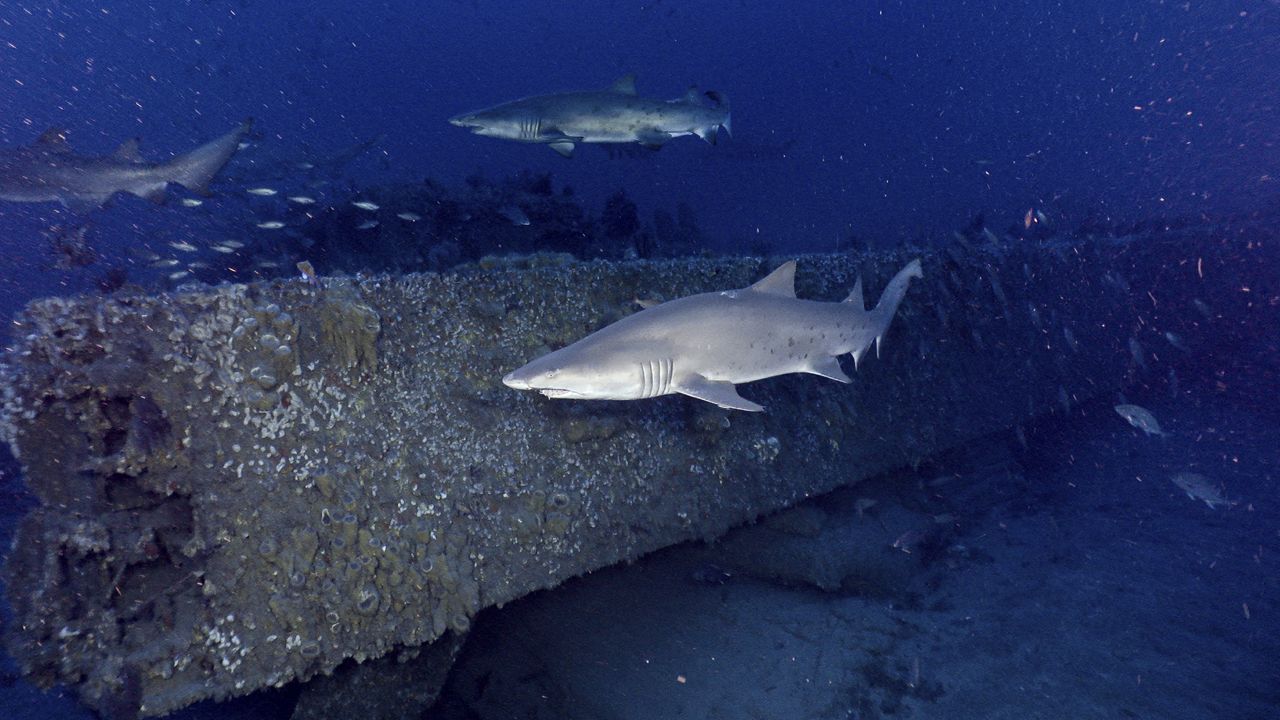A new study is highlighting the dire risk facing a majority of marine wildlife should global greenhouse gas emissions continue at current levels.
The study, published Monday in the journal Nature Climate Change, evaluated the risk for nearly 25,000 marine species and their surrounding ecosystem and the potential impact of greenhouse gas emissions. Researchers created a checklist – which they deemed the Climate Risk Index for Biodiversity – to assess which species might be most impacted by warming waters through a variety of factors.
Researchers first looked at how the species’ “innate characteristics,” such as its body size and temperature tolerance, interact with its current and projected environment and compared those findings against the “present-day sensitivity to climate change, projected future exposure and innate potential to adapt,” they wrote in part. By comparing these factors, researchers were able to assess “both the likelihood and the magnitude of the impact of climate change for each species across the locations in which they are found.”
The study painted two different futures for marine life: one in which the global average ocean temperature increases between 3 to 5 degrees Celsius by 2100, and another in which temperatures only increase by 1 to 2 degrees Celsius.
Current estimates vary, but evidence indicates that the ocean temperature could rise between 1.1 to 5.4 degrees Celsius, likely falling on the higher end of that spectrum should countries fail to meet the emissions standards set in the Paris Climate Agreement.
Under the high-emissions scenario examined by researchers – which is alternately referred to as “business as usual” or “worst-case” scenario in the scientific community – nearly 90% of all marine life faces high or critical risk of extinction across 85% of their natural distribution range.
Species most at risk were those higher up on the food chain, including sharks, tuna and billfishes, which researchers wrote “further suggests that ecosystem structure and functioning will be affected.” The impact would also be felt disproportionately in coastal regions between Australia and mainland China, as well as the eastern coast of the Americas.
“Under the high emissions scenario, climate risks for species fished by humans for food or revenue – such as for instance cod, anchovies and lobsters – were systematically greater within the territories of low-income nations,” study co-authors Dr. Derek P. Tittensor and Dr. Daniel G. Boyce wrote in a guest column in Carbon Brief.
In order to mitigate the worst of the climate impacts on marine species, researchers stress the need for all nations to comply with the guidelines set out in the Paris Climate Agreement.
Since signing the 2015 Paris climate accord, most countries have stepped up their efforts to reduce greenhouse gas that underlie human-made global warming. But collectively those pledges still fall far short of what’s needed to limit global warming since pre-industrial times to 1.5 degrees Celsius (2.7 Fahrenheit) by the end of the century.
At an international meeting in Germany this June, which aimed to lay the foundations for this year’s international climate summit in Egypt set to take place in November, representatives of the group of 46 Least Developed Countries demanded that big polluters such as China and the United States cut their emissions more strongly and pay for the damage that’s already resulting from climate change.
“Countries with much greater responsibility and capabilities than ours must close the funding gap so that when the impacts of climate change hit — when houses and hospitals are washed away, when crops are destroyed, when islands sink and when whole communities are displaced — the costs don’t land on the already vulnerable households,” said the group’s chairperson, Madeleine Diouf Sarr from Senegal.
Researchers in Monday’s study noted that while “low-income countries have made the smallest contribution to climate change, they are likely to bear the brunt of the impacts while being the least well positioned to adapt.”
A curb on emissions from the world’s largest nations “would have substantial benefits for marine life,” researchers further said, though they also acknowledged that climate change mitigation must also include efforts like fisheries management, protected area planning and biodiversity conservation. Complying with the goals set out in the Paris Accord, which aims to keep global oceanic warming below 2 degrees Celsius, would reduce the risk for about 98% of species studied in the paper published Monday.
The Associated Press contributed to this report.



